40 who signs bills to become laws
19 Who signs bills to become laws Choose one a The Chief ... 19. Who signs bills to become laws? Choose one: a. The Chief Justice of the Supreme Court. b. The Vice President. c. The Secretary of State. d. 43. Who signs bills to become laws? - American Tribute Who signs bills to become laws? • The President (of the United States) ... project of the Texas non-profit corporation FCM Enterprises, Inc. Shares helpful information in passing the test to become a U.S. Citizen. You'll find information that is helpful for Untied States Citizenship. Those who become a citizen through naturalization or ...
How Bills Become Laws Flashcards - Quizlet The president may sign the bill (making it a law), veto a bill, or hold the bill without signing. What happens if a bill is vetoed? Congress can override the veto, and it becomes a law without the president's approval if 2/3 of both houses of congress vote against the veto.
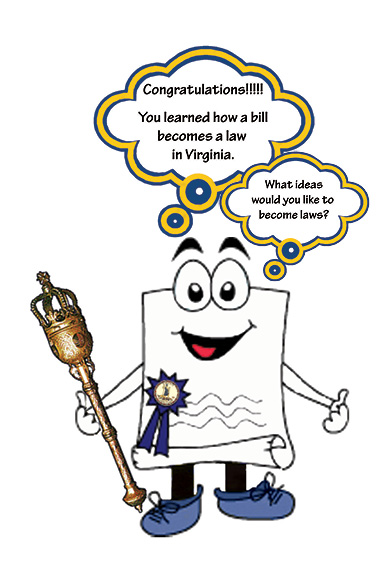
Who signs bills to become laws
033 Who signs bills to become laws? - iESLPod | 英语播客 Most bills need the president's signature (or written name placed on the bill to show that it is approved) to become law. Once Congress votes to make a bill become a law, the bill is sent to the president. The president then has four choices. First, the president can sign the bill to make it become a law. Who signs bills into law? - Answers Thus Congress passes bills, but the President signs them into law. The bill can become law without the President's signature, if he/she vetoes the bill and Congress overrides it by 2/3 vote of ... 33. Who signs bills to become laws? - American Tribute Who signs bills to become laws? The President. Every law begins as a proposal made by a member of Congress, either a senator (member of the Senate) or representative (member of the House of Representatives). When the Senate or House begins to debate the proposal, it is called a "bill.". After debate in both houses of Congress, if a majority ...
Who signs bills to become laws. 8 Things to Know about How State Bills Become Law One hurdle in taking action is understanding the complicated process by which a state bill becomes law. We've made it really simple, and broken down the 8 most important things to know about how state bills become law. 1: The path most bills follow in state legislatures to become law is pretty similar. Legislators write bills. 7 Who signs bills to become laws A The Chief Justice B The ... 7 Who signs bills to become laws A The Chief Justice B The President C The. 7 who signs bills to become laws a the chief justice. School Davao Oriental State College of Science and Technology; Course Title CHE 1; Uploaded By JusticeFlower6268. Pages 26 This preview shows page 22 - 26 out of 26 pages. How a bill becomes a law - Genome.gov Step 8: The bill goes to the president. After both the House and Senate have approved a bill in identical form, the bill is sent to the President. If the President approves of the legislation, it is signed and becomes law. If the President takes no action for ten days while Congress is in session, the bill automatically becomes law. Bills Introduced that have Become Law | Congressman Scott ... Bills Introduced that have Become Law. H.R. 586, STANDUP Act: Scott introduced the STANDUP Act during the 116th Congress with Rep. Gus Bilirakis (R-FL) in 2019 and re-introduced again in 2021 for the 117th Congress. The bipartisan, bicameral measure requires states, schools, and Tribes to teach students, teachers, and administrators to identify ...
How a bill becomes a law in Canada | Courthouse Libraries BC A bill is a proposed law that is introduced in either the House of Commons or the Senate. Most bills are introduced in the House of Commons. Bills can amend or repeal existing law or can contain completely new law. There are two kinds of bills: public and private. Public bills relate to public policy and may be sponsored by a Minister ... [Solved] Who signs bills to become laws? Choose one: Q. Who signs bills to become laws? Choose one: A. The Chief Justice of the Supreme Court. B. The Vice President. C. The Secretary of State. D. The President. Who signs bills to become laws in the US? - Quora Answer (1 of 5): THE PRESIDENT!!! The House of Representatives introduces an idea, debates it in committee, and, upon passing, goes to the whole House, where, if it passes, it is sent to the Senate. There, it is sent to the appropriate Senate Committee, debated, and IF passed, goes to the floor... Who signs a bill into law in the federal government ... The president then may sign those bills into law. Federal courts may review the laws to see if they agree with the Constitution. Who signs the bills passed by Australian parliament before they become law? Bills are considered consecutively by the two houses of the Federal Parliament, the House of Representatives and the Senate.
How Bills Become Laws in the US Congress - ThoughtCo The President may sign the bill into law or take no action. If the President takes no action on a bill for ten days while Congress is in session, it automatically becomes law. If the President is opposed to the bill, they can veto it. If they take no action on the bill for ten days after Congress has adjourned their second session, the bill dies. How a Bill Becomes a Law - Minnesota Legislature State Law Process - This publication from House Public Information Services gives examples of the need for new laws, a numbered list of steps a bill must go through, and a question and answer section. Capitol Steps: From Idea to Law - A publication produced by the House of Representatives Public Information Office that explains how bills become ... Who signs bills to become laws? Flashcards and Study Sets ... Learn Who signs bills to become laws? with free interactive flashcards. Choose from 500 different sets of Who signs bills to become laws? flashcards on Quizlet. Who signs bills to become laws? O the president O the ... Answer: the president . Explanation: After both the House and Senate have approved a bill in identical form, the bill is sent to the President. If the President approves of the legislation, it is signed and becomes law.
Kids in the House - Grade School - How a Bill Becomes a Law Sign and pass the bill—the bill becomes a law. Refuse to sign, or veto, the bill—the bill is sent back to the U.S. House of Representatives, along with the President's reasons for the veto. If the U.S. House of Representatives and the U.S. Senate still believe the bill should become a law, they can hold another vote on the bill.
Governor Cooper Signs Budget and Two Bills into Law | NC ... Today, Governor Roy Cooper signed the following bills into law: Senate Bill 105: 2021 Appropriations Act. . . Governor Cooper made the following statement on SB 105: "This budget moves North Carolina forward in important ways. Funding for high speed internet, our universities and community colleges, clean air and drinking water and desperately ...
How A Bill Becomes A Law | U.S. Representative Lori Trahan Sign and pass the bill—the bill becomes a law. Refuse to sign, or veto, the bill—the bill is sent back to the U.S. House of Representatives, along with the President's reasons for the veto. If the U.S. House of Representatives and the U.S. Senate still believe the bill should become a law, they can hold another vote on the bill.
Who signs bills to become laws Who signs bills to become laws. Answers: 2 Show answers Another question on History. History, 21.06.2019 17:00. Here's the first one let me send the next page of the passage. Answers: 1. Answer. History, 21.06.2019 18:50. What strategy is this ad using to get people to support its product? o o lt claims that everyone agrees that these ...
33. Who signs bills to become laws? - Civics Way When the Senate or House begins to debate the proposal, it is called a "bill.". After debate in both houses of Congress, if a majority of both the Senate and House vote to pass the bill, it goes to the president. If the president wants the bill to become law, he signs it. If the president does not want the bill to become law, he vetoes it.
PDF How a Bill Becomes Law - Indiana If he signs it, the bill becomes law. If he does nothing, the bill becomes law without his signature. If he vetoes the bill, and the Senate and House of Representatives do nothing, the bill "dies." If he vetoes the bill and the Senate and the House of Representatives attempt to over-ride the veto, the bill may still become law.
33 - Who signs bills to become laws? - U.S. Citizenship ... Need more help studying for your oral exam? Download ALL 100 questions and answers on the civics exam today! Just visit for deta...
The Federal Legislative Process, or How a Bill Becomes a Law After the conference report has been approved by both the House and the Senate, the final bill is sent to the President. If the President approves the legislation, he signs it and it becomes law. If the President does not take action for 10 days while Congress is in session, the bill automatically becomes law.
33. Who signs bills to become laws? - American Tribute Who signs bills to become laws? The President. Every law begins as a proposal made by a member of Congress, either a senator (member of the Senate) or representative (member of the House of Representatives). When the Senate or House begins to debate the proposal, it is called a "bill.". After debate in both houses of Congress, if a majority ...
Who signs bills into law? - Answers Thus Congress passes bills, but the President signs them into law. The bill can become law without the President's signature, if he/she vetoes the bill and Congress overrides it by 2/3 vote of ...
033 Who signs bills to become laws? - iESLPod | 英语播客 Most bills need the president's signature (or written name placed on the bill to show that it is approved) to become law. Once Congress votes to make a bill become a law, the bill is sent to the president. The president then has four choices. First, the president can sign the bill to make it become a law.



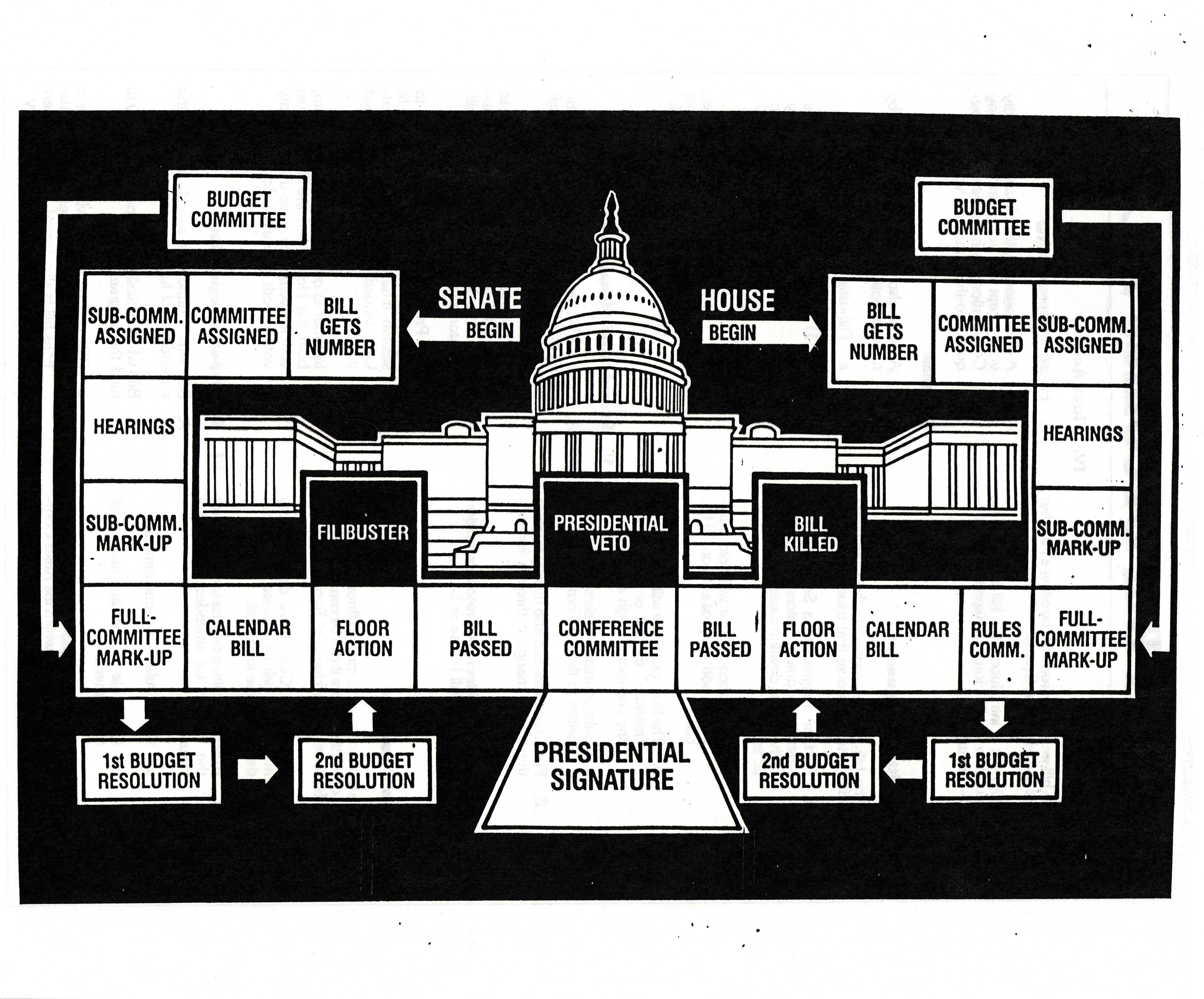

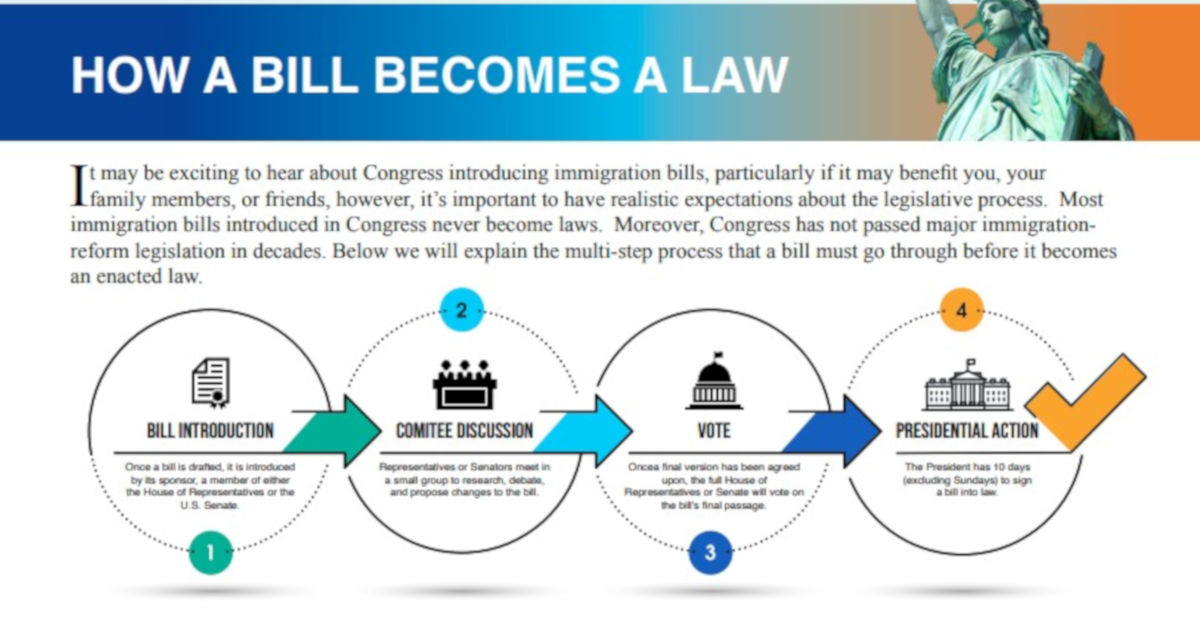
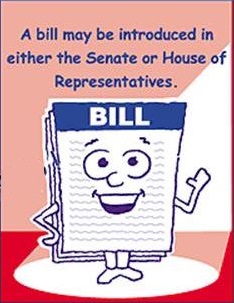

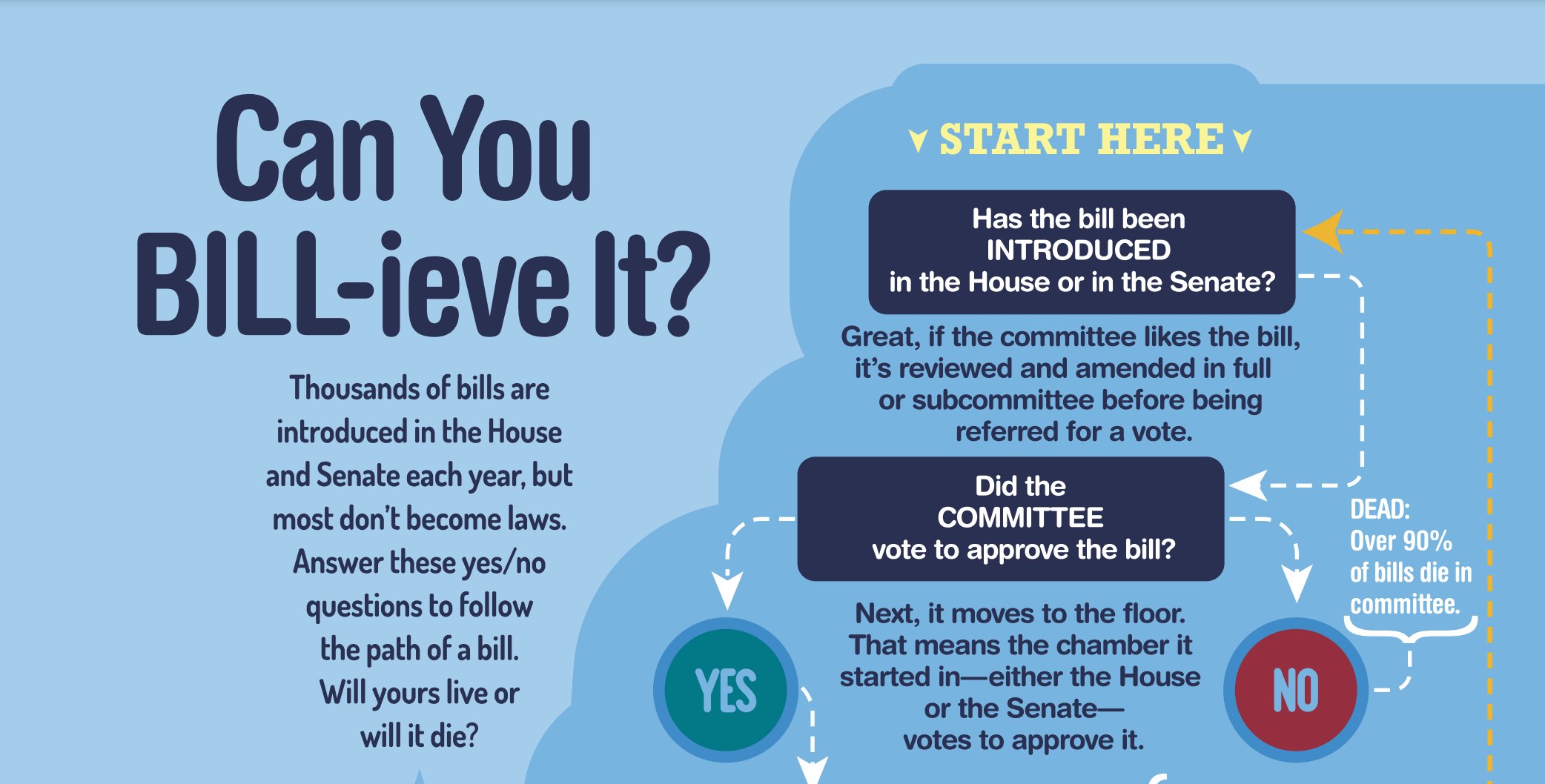


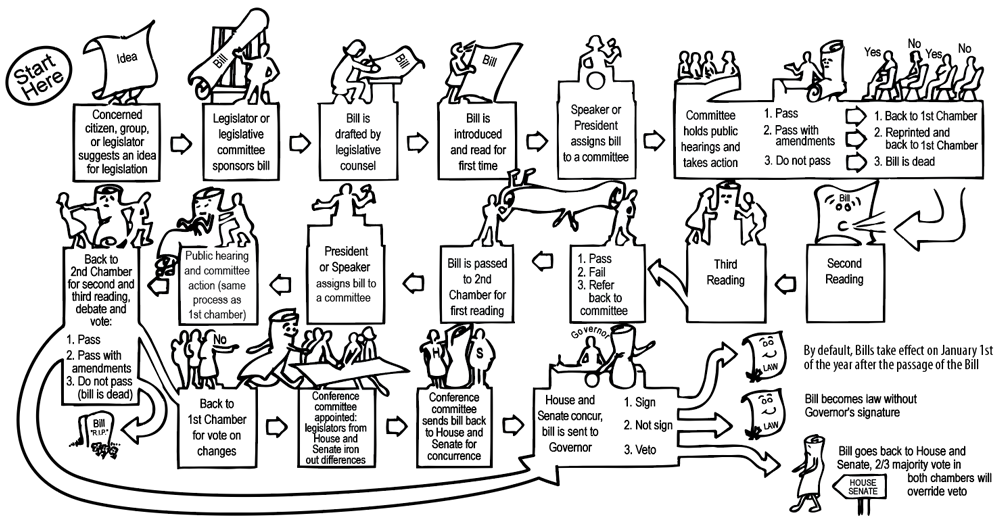
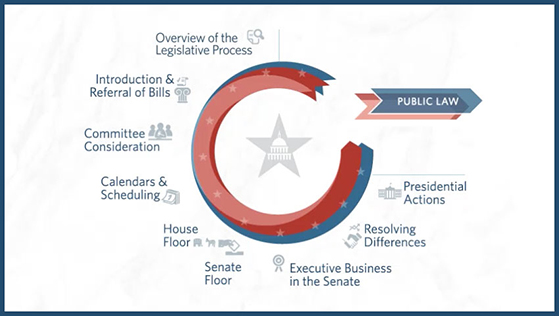




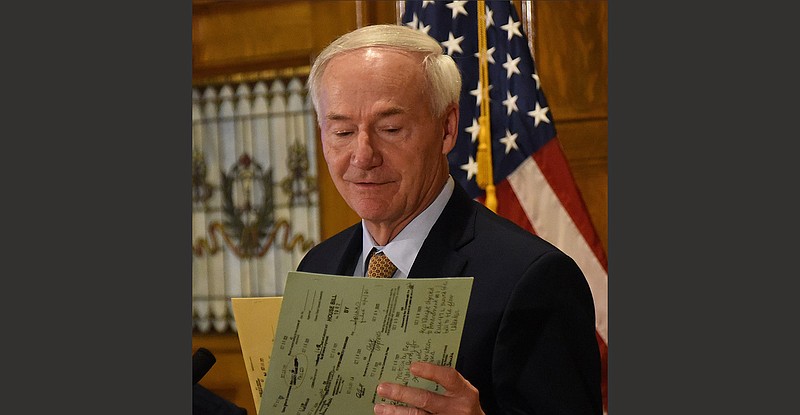
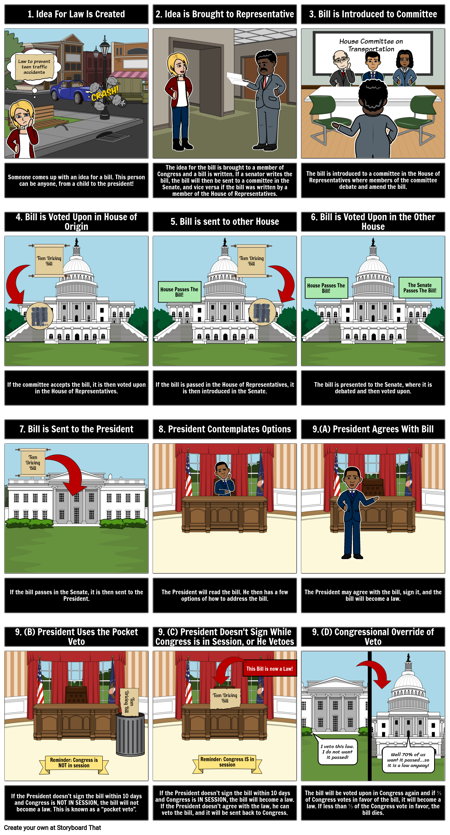
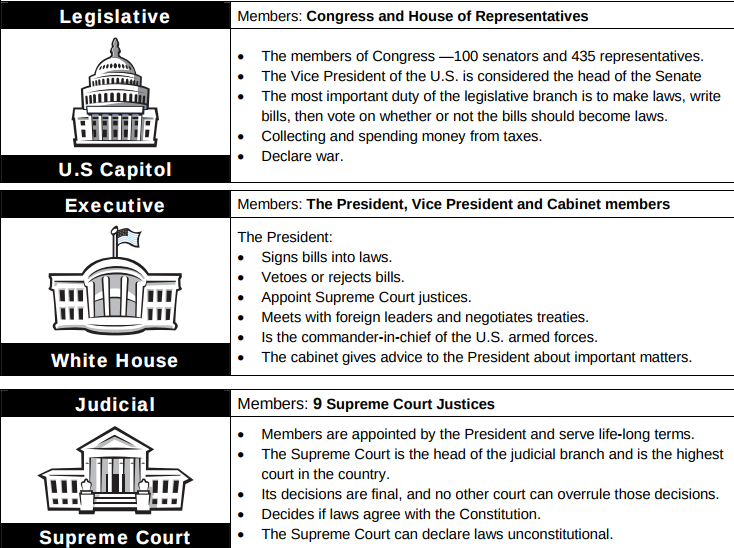




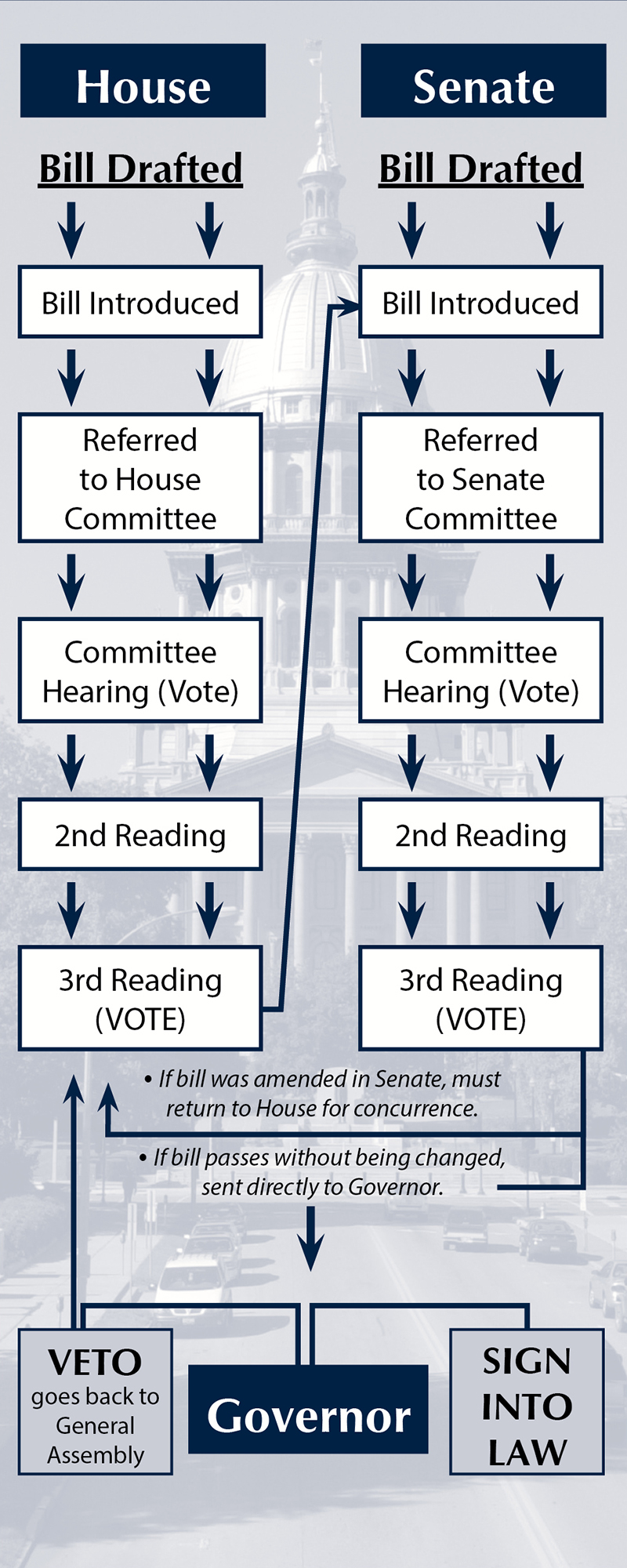



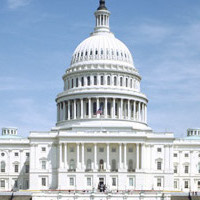

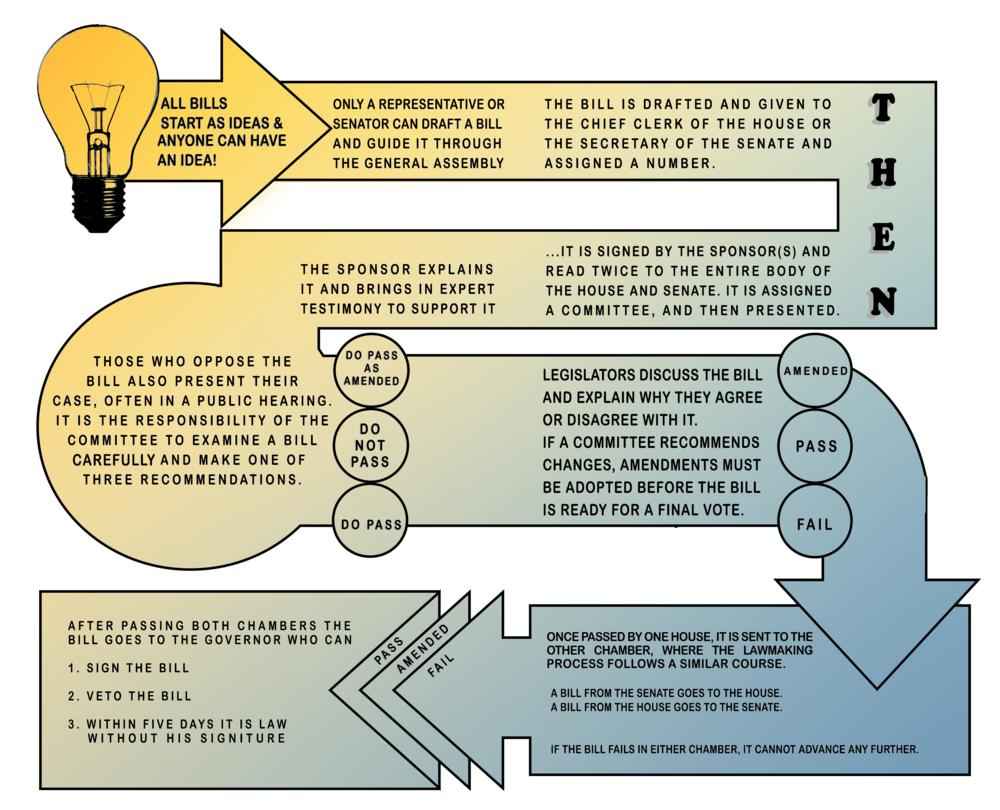



0 Response to "40 who signs bills to become laws"
Post a Comment